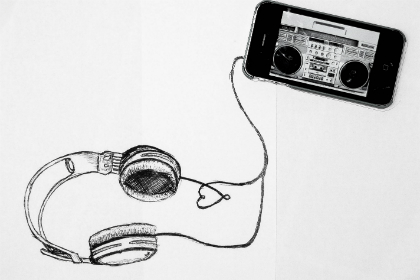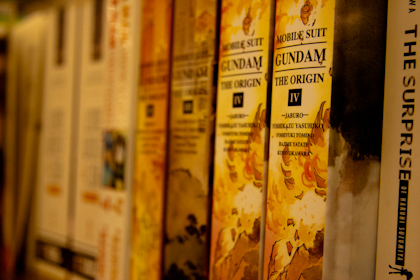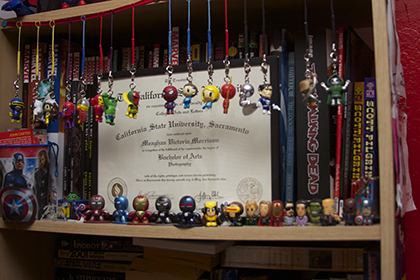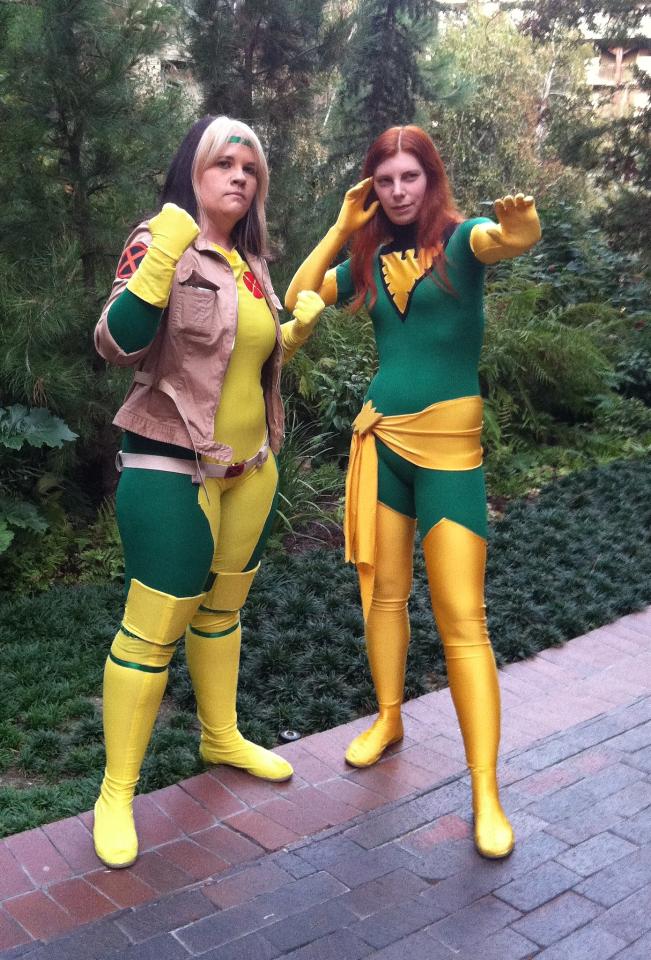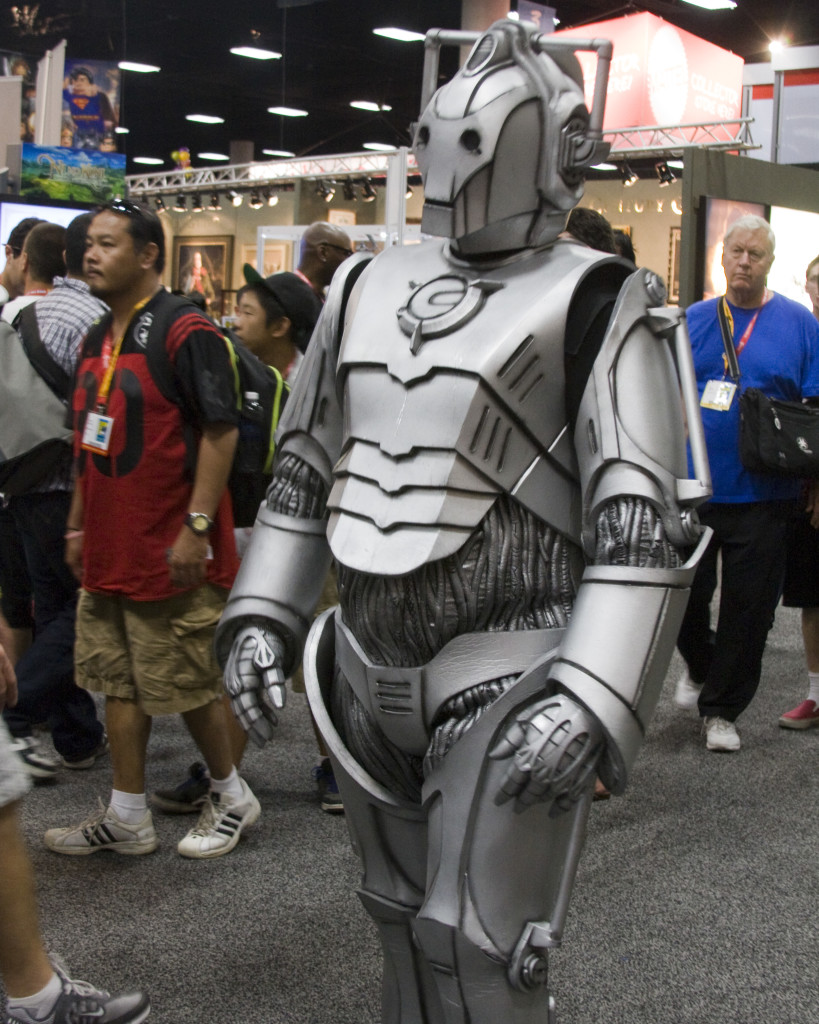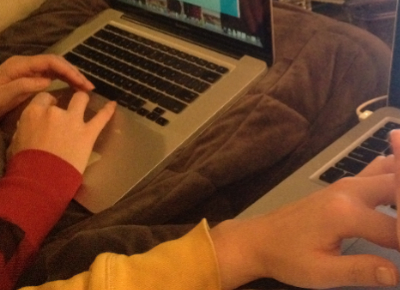Spoiler Alert! (But honestly this show ended over eleven years ago and I don’t know what you’ve been doing with your life since then.)
One time, a really long time ago—I must have been in high school—I was flipping through the channels when there she was, like she’d just stepped out of Bloomingdale’s, backflipping through a cemetery with a wooden stake. “Something quippy about heartburn,” she said, and jabbed the stake through a monstery-looking monster’s chest before he burst into a cloud of dust.
And I was like, (eyeroll) anyways… and changed the channel.
This memory was called to mind when years (oh my god, over ten of them) later a close friend suggested—nay—insisted that I watch the series. She said it would be life changing. Mind blowing. Wildly entertaining. But I could only think, “Something quippy about heartburn.” I promised I’d give it a chance anyway and agreed that if I made it past a certain point and wasn’t absolutely invested, we would move on and never mention this again.
So in I went, with a little bit of Daria on my face, not quite sure what I was in for. And though I wasn’t completely sold on season one’s monster-of-the-week arc, I was drawn in immediately by the glorious oozing 90’s nostalgia. What were those outfits. And those shoes. Yes, all the details harkened back to the days when slap bracelets and Clinton were both very in, when I was ten and life was swell. Am I saying that the butterfly clips, MC Hammer pants and the perfectly symmetrical face of David Boreanaz carried the first season? Maybe, yes, I am saying that. That, and the promise that it gets better.
And oh does it get better.
So there I was, week two, season two and Buffy Summers is all a-lust over Angel, her perfectly attractive, emotional vampire boyfriend made of equal parts brooding and brawn, who is also, in case this hasn’t come up, just very good looking with a nice face. Body, too. Anyways. Together, they were all the things that Ross and Rachel, Luke and Lorelai, Corey and Topanga would never be. She’s a complicated woman with a dirty job that no one wants and that bleeds into her personal life. He’s a reformed villain seeking redemption for his rotten ways. But, as The Slayer, she is his sworn enemy and, as a vampire, he is her next target. Romanciers, eat your hearts out ‘cause it gets worse. As passions of the heart became passions of the flesh, we learn that the spell that gave Angel his “soul”—the thing that keeps away his villainous ways—would break if he experienced one moment of true happiness. What would cause said moment? Think about it… think about… yeah, worst one night stand ever. Angel reverts to his old evil ways, and Buffy discovers that, shocker, the love of her life might not be who she thought he was.
And just like that Joss Whedon had me. He had me at Hellmouth. The classic “my boyfriend said he loved me until I slept with him and he dropped me like a hot potato” metaphor was alive and well in season two of Buffy. What could I say: this show not only had heart, it was a lot of pun. See what I did there?
Whedon let our little slayer slay on for five more seasons. And I fell straight down the demonic portal rabbit hole. He took every challenge life has to offer and put the face of a monster on it—school bullies, mom’s weird boyfriend, addiction, depression, and death—and then he sent Buffy and her gang of Scoobies in to duke it out with whatever happened to be handy. Thus, the joy of Buffy, I think, comes from the power that so many works of fiction wield: they provide a world parallel to the viewers’ own where many of the same struggles exist and the same feelings are felt. It does not condescend or trivialize but validates the experience when all the while a tiny blonde woman beats the hell out of really, really big dudes for just the right touch of empowering escapism.
Which leads me into next portion of my ode to Buffy. Buffy and her best bestie, Willow, are wicked badass. They don’t even fall into the common strong-female-lead-trap of being wholly one-dimensional, emotionally unavailable warriors of the cause who martyr-on in the wake of everyone else’s incompetence. That’s how badass they are. Sure, Buffy has her martyr season, but if you jumped through a demonic portal to save the world, you might find yourself a tad resentful, as well—just a guess. They have feelings about what’s going on and sometimes those feelings are less than positive. Buffy often resented her responsibility, lamented her works’ impact on her love life, made poor decisions, felt overwhelmed, insecure, weak. And she still managed to save the world. A lot.
So much more can be said on this topic. Whole canons of text have been scribed on the subtext of feminism, sexuality, religious implications, and the social and cultural influences of Whedon’s series.
But I’m not here to break down the semiotic significance of “Hush”, the only Emmy-nominated episode (wherein a spell befalls Sunnydale that causes everyone to fall silent).
I’m not going dissect the power dichotomy in the scene where Spike tries to rape Buffy or examine the paternal role of Giles, the Watcher.
I will say this, though: Buffy The Vampire Slayer is a true coming-of-age story that makes no false pretenses or even offers any answers on what it’s like to grow up or on what being grown up looks like. There’s no neat package. No bows. There is, however, the promise that life is messy, unpredictable, complicated and full of as much beauty as there is ugliness. That these experiences are universal and also survivable is probably Whedon’s most important message of all. Because with the right friends by your side and a well-timed zinger, there’s no challenge that can’t be overcome. Even the apocalypse.

Photo by Sara Slattery
